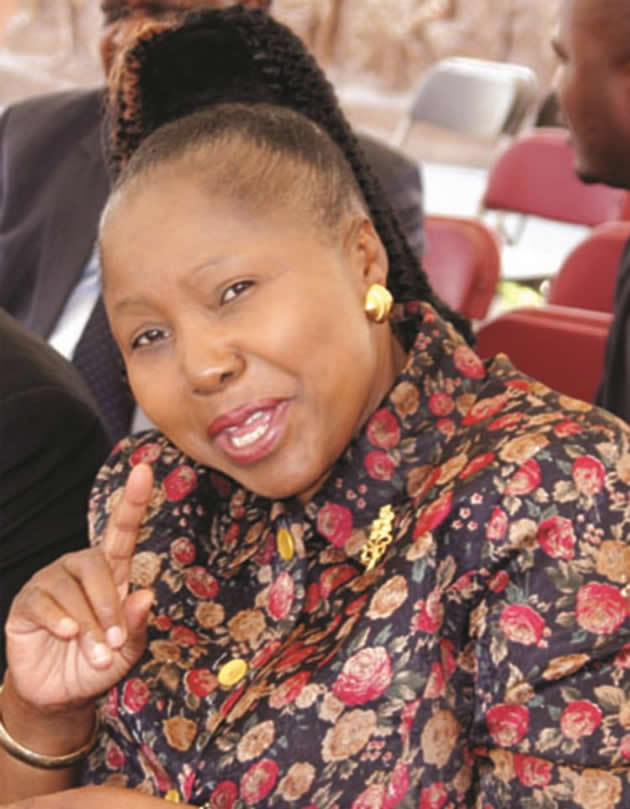State seeks to end telecoms infrastructure dispute


Information Communication Technology, Postal and Courier Services Deputy Minister Dr Win Mlambo (second left) makes a point during a panel discussion at the digital future conference yesterday. Other panellists included NetOne managing director Mr Reward Kangai (left), digital media expert Ms Veronica Mantiziba (second right) and ZOL Zimbabwe chief executive Mr Denny Marandure
Business Reporter—
Government will assign an independent entity with adequate financial muscle to take charge of setting up broadband and telecommunications infrastructure so that telecoms operators focus on their core business of service provision. Three telecoms giants – Econet, Telecel and NetOne – have been trading accusations and counter-accusations on the sharing of infrastructure.
The failure by the telecoms players to share infrastructure has resulted in unprecedented environmental degradation through the installation of underground fibre and high cost of telecommunication services in the country.
Information Communication Technology, Postal and Courier Services Deputy Minister Dr Win Mlambo yesterday told the Digital Future Conference that telecoms operators should stop the development of infrastructure and focus on their core business.
“Telecoms operators should stop focusing on building infrastructure and focus on the core business of providing quality services to consumers. This has of late created contests among these companies especially around the issue of infrastructure sharing.
“As Government we want to see one independent company setting up infrastructure for the telecoms companies so that this whole dispute of who owns which infrastructure is solved. So that is the route that Government has taken and we will sit down with the players to agree on certain terms,” said Dr Mlambo.
Zimbabwe’s telecoms operators individually invested and owned infrastructure, giving the more established ones a competitive advantage. However, the country currently has no standing regulation that promotes infrastructure sharing among telecommunications industry players.
For new operators sharing provides a significant opportunity to reduce time into the market inasmuch as it is a reduction in market entry barriers. The past five years have witnessed rapid growth in the telecommunications industry as evidenced by the mobile penetration ratio of 106,4 percent as at first quarter 2014 and broadband penetration of 43,1 percent.
NetOne managing director Mr Reward Kangai said the move by Government to assign a company to focus mainly on infrastructure building is a welcome development as it will promote competition on service provision which will eventually benefit the consumers.
“As an operator we don’t have a problem with sharing mobile telecoms site infrastructure, however, the role to build towers and develop sites should be left to infrastructure companies (like Helios Towers). Our operations should also consider the plight of our consumers who deserve better service provision all the time,” said Mr Kangai.
ZOL Zimbabwe chief executive Mr Denny Marandure said telecoms companies should focus on their core businesses so that internet becomes cheap, fast and accessible.
“Internet is a human right and sharing of information is a right under the United Nations Charter. However, telecoms companies should desist from competing on infrastructure, but focus on providing good service to the consumers, especially broadband services,” said Mr Marandure.
Of late Potraz has been planning to ensure compulsory infrastructure sharing, but Government has since taken over to make sure the directive is adhered to.
The country’s top broadband providers are TelOne, Econet Wireless, Powertel, NetOne and Telecel.
The growth in broadband uptake in Zimbabwe and the rest of Africa has largely been attributed to state-of-the-art mobile phones that are coming into the market on a daily basis.
Other manufacturers, especially in Asia, have also come to the party and are producing thousands of lowly priced handsets, which in some cases provide for internet service.











Comments